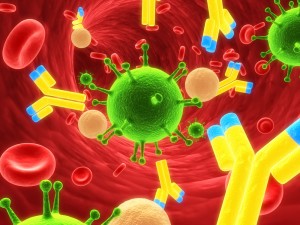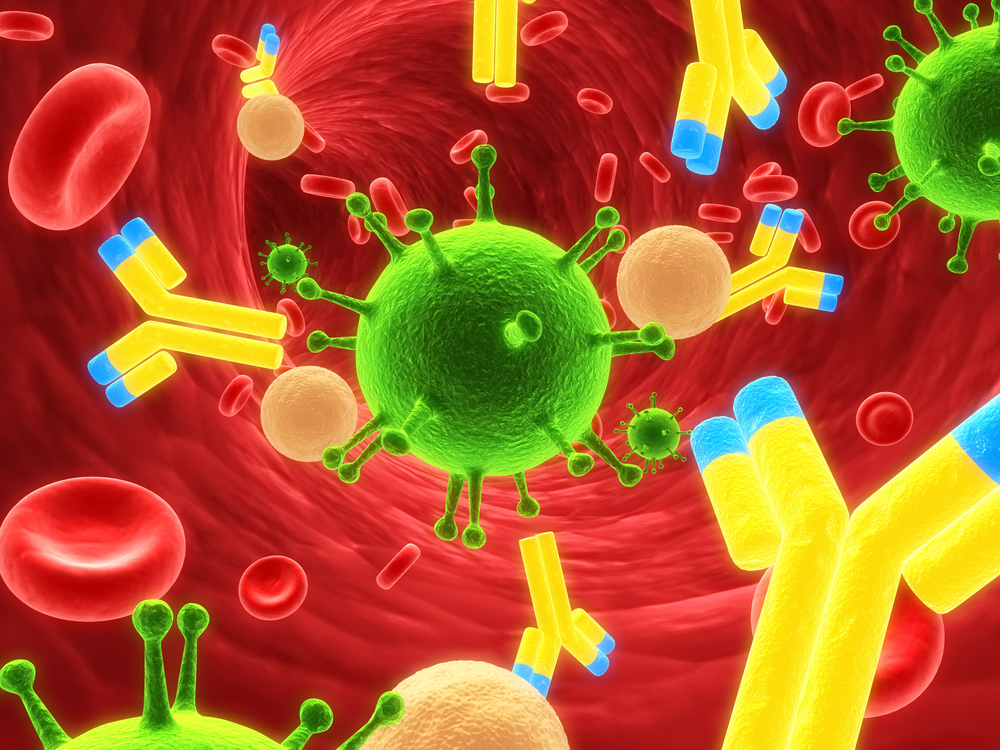 Generex Biotechnology Corporation has announced the latest scientific results concerning its AE37 cancer vaccine, being developed by Antigen Express, Inc., were presented at the 29th Annual Meeting & Associated Programs of the Society for Immunotherapy of Cancer (SITC), held November 6-9, 2014 in National Harbor, MD.
Generex Biotechnology Corporation has announced the latest scientific results concerning its AE37 cancer vaccine, being developed by Antigen Express, Inc., were presented at the 29th Annual Meeting & Associated Programs of the Society for Immunotherapy of Cancer (SITC), held November 6-9, 2014 in National Harbor, MD.
The presentation entitled “Correlation of HER2/neu antibody response to clinical response in a phase II trial of the AE37+GM-CSF HER2 peptide vaccine“ showed that the AE37 cancer vaccine induced an antibody response directed at its HER2 receptor, correlating with a decrease in breast cancer relapse. The study further demonstrated the efficacy of the immune response generated by Generex novel cancer vaccine.
The AE37 peptide vaccine is able to stimulate the immune system and CD4+ T-helper cells to recognize the HER2 protein, which is expressed on HER2-positive breast tumors, as a foreign protein. The vaccine incorporates the HER2 peptide (AE36) based on an immune-regulatory protein called li-Key peptide, significantly increasing the potency of the vaccine.
Previous clinical studies have demonstrated effective immune responses generated by AE37, however, this is the first study that analyzed the production of HER2-specific antibody responses induced by the vaccine.
This immune therapy was specifically engineered to activate HER2-specific CD4+ T cells, a type of lymphocyte that plays a key role on the induction of cellular and humoral (antibody production) responses.
Furthermore, patients who received this vaccine also showed an increase in CD8 cytotoxic T lymphocytes, along with a reduction in the number of Tregs (regulatory T cells).
“The most unique aspect is that AE37 is a Ii-Key Hybrid peptide that is MHC Class II-associated and elicits a CD4+ T-cell response,” Dr. Timothy J. Vreeland, a resident at the Brooke Army Medical Center in San Antonio, Texas said in a news release. “Until recently the vast majority of cancer vaccine research has been focused on the MHC Class I molecule because the tumor cells themselves have Class I molecules.”
The fact that the vaccine induces a CD4+ T-cell response causes a more robust immune response. The involvement of helper T-cells is extremely important, and is dependent on the li-Key peptide present in this vaccine, which is the first cancer vaccine showing success with MHC Class II peptides.


